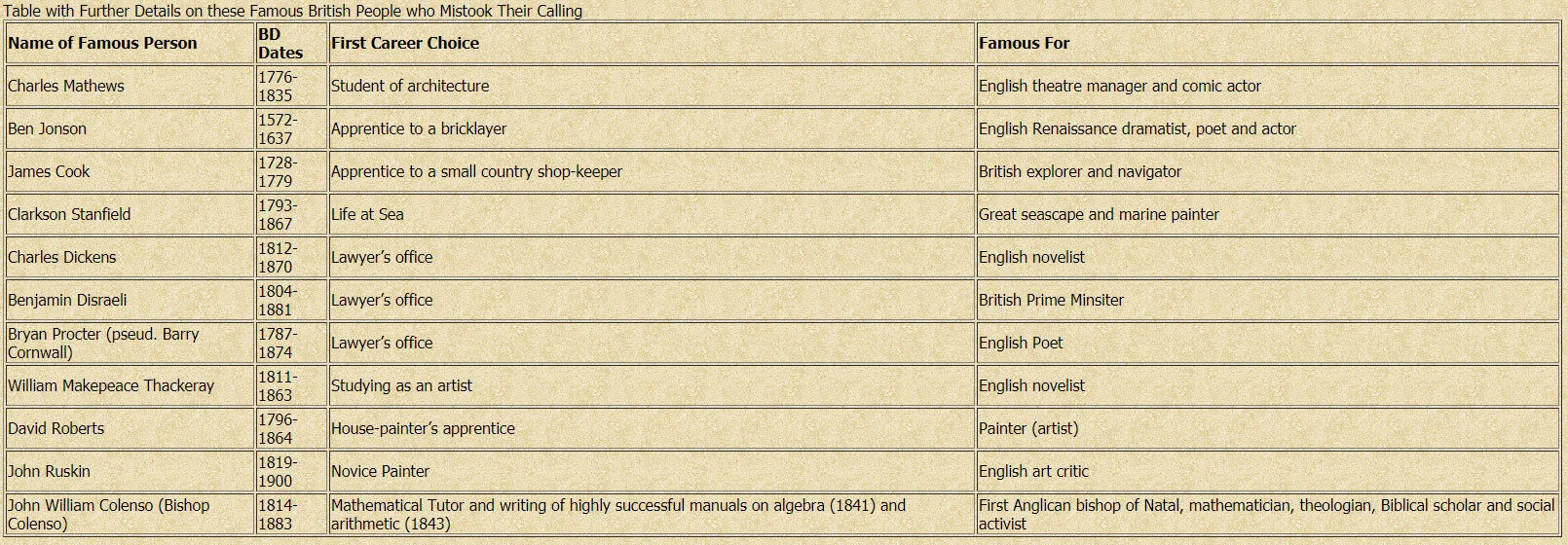British Men Who Mistook Their Calling
Mr. Charles Mathews made his first appearance in the character of a student of architecture. Ben Jonson was an apprentice to a bricklayer, and then enlisted for a soldier, before he set up as wit-combatant with Shakespeare, and fell out with Inigo Jones, who was associated with him in the production of the fanciful court masques of his day, and before he was a member of the club Sir Walter Raleigh founded, and wrote that song “Drink to me only with thine eyes,” that lies like a loose pearl among his more lengthy works. James Cook, the navigator, instead of running away to sea like another Robinson Crusoe, was apprenticed to a small country shop-keeper, who, however, detecting the wistful glances the lad case towards the ocean, returned him his indentures. As a reverse to this example, enacted within remembrance, Clarkson Stanfield, R. A., went to sea, instead of turning his steps straightway to a studio. Mr. Charles Dickens and the younger Disraeli both mistook their roads on first setting out in life, thinking a lawyer’s office lay in their right paths. Barry Cornwall (Proctor) fell into the same error. Mr. Thackeray likewise lost his way at first, and tarried in Rome, studying as an artist. David Roberts, R. A., climbed the ladder that led to his present elevation from the level of a house-painter’s apprentice, with an interval of noviciateship* spent as a scene-painter in Drury-lane Theatre. Mr. Ruskin coquetted with the brush before he took up the pen, as vigorously as Bishop Colenso attacked algebra before he distinguished himself as a theologian.
*Noviciate = A period of being a novice.

